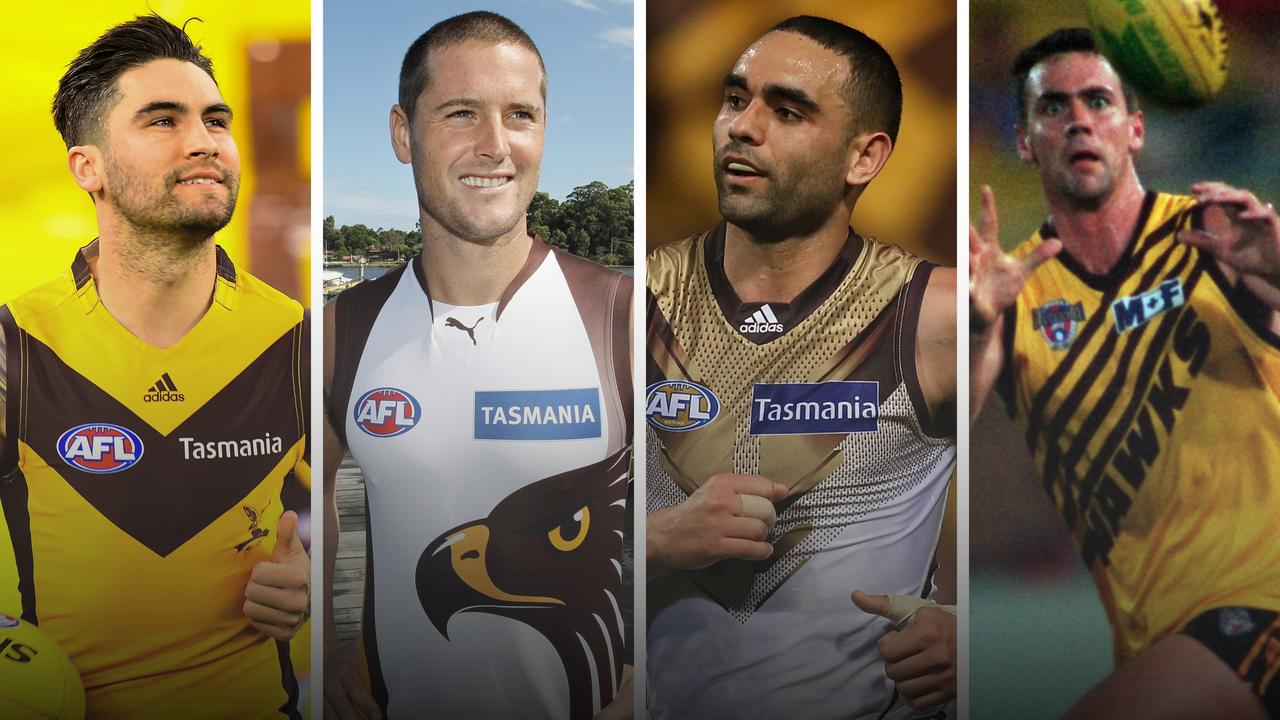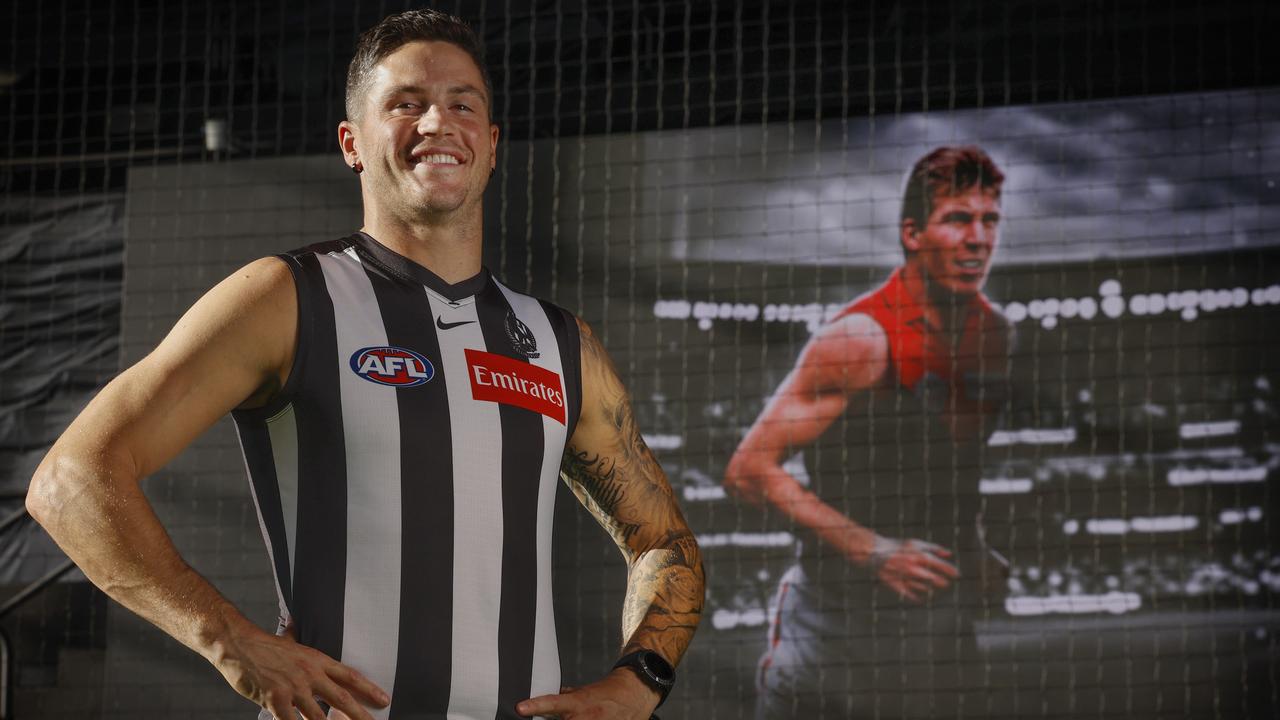AFL tickets 2022: Fans angry after Ticketmaster website issue
Desperate footy fans who logged on to secure Round 1 tickets were left frustrated after a website issue, forcing supporters to wait to lock in their return to live AFL.
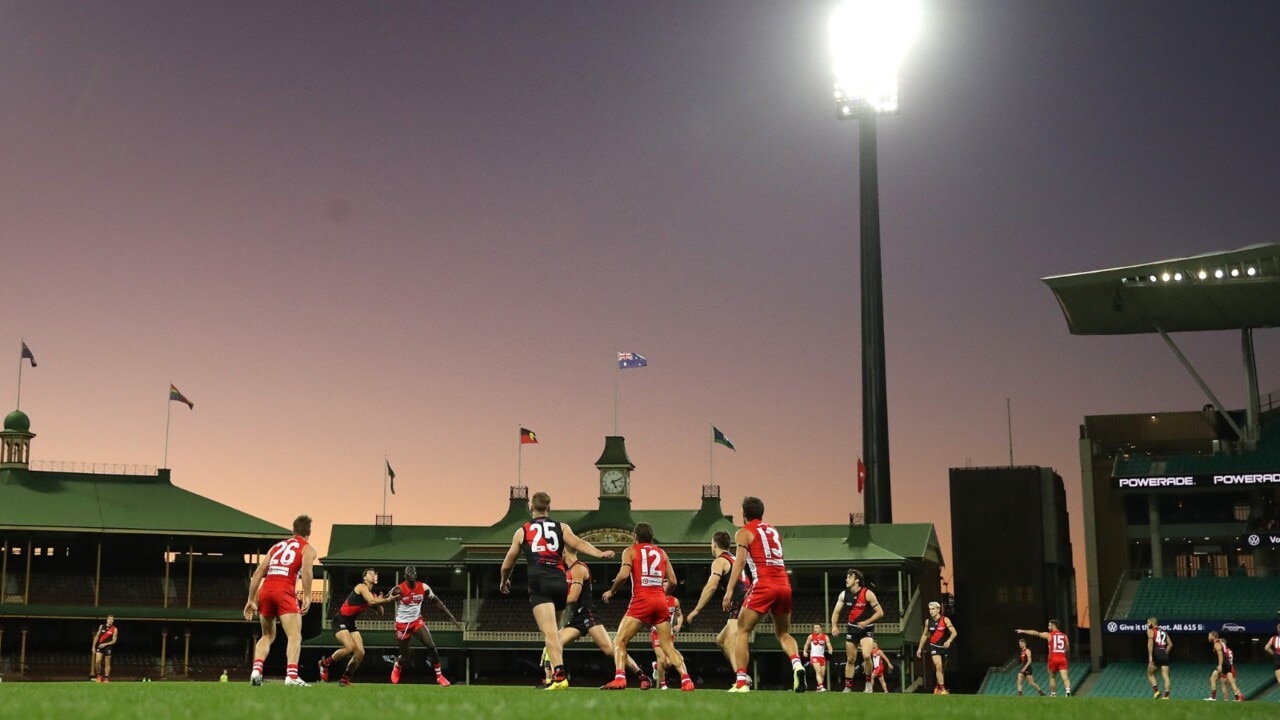
AFL
Don't miss out on the headlines from AFL. Followed categories will be added to My News.
AFL fans vented their frustration on Tuesday after ticket sales for the opening five rounds of the AFL season were delayed after an issue with Ticketmaster.
Members’ tickets for Marvel Stadium and Giants Stadium games for the opening rounds of the new season were supposed to go on sale at 10am on Tuesday. However, a Ticketmaster system issue meant fans were unable to access tickets with the on-sale “postponed” for two hours until 12pm.
The delay was announced two minutes before the tickets were supposed to go live to fans.
One exasperated fan tweeted Ticketmaster telling the company his “account doesn’t exist apparently, and I also can’t create a new account”.
Another Twitter user was one of many to air their similar frustrations.
“Postponed 2 minutes before live? How do you stuff this up every single time and have no negative repercussions?” one Twitter user asked.
Another fan slammed the company after the delay was announced.
“What an absolute joke! First on-sale of the season and the Ticketmaster system has totally collapsed! You had one job, Ticketmaster. Stop making excuses and get it right. We have more to do than just hang around waiting for you to sort things out. Do what you’re paid to do!!” said one Twitter user.
The AFL said “the technical issue with the AFL Members on-sale has now been resolved” with the on-sale starting at 12pm.
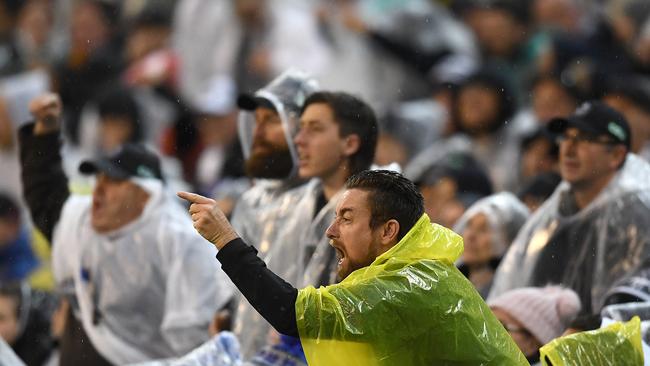
AFL BOSS ANSWERS BIG QUESTIONS ABOUT SEASON 2022
Lauren Wood
AFL chief executive Gillon McLachlan revealed the appetite for back-to-back games at the league’s promotion on Monday of its massive Marvel Stadium renovation project.
The refurbishment, which was boosted yesterday by a $225m state government injection, will include upgraded change room facilities with an eye for more women’s sport at the league-owned venue.
Footy’s back! Everything you need to know for 2022 is in the Herald Sun footy magazine. On sale now for $7.95 with the Herald Sun. Click here for more details.
McLachlan confirmed that discussions surrounding double-header clashes between men’s and women’s matches remained firmly within the competition’s sights as the AFLW prepares to expand to include all 18 clubs next season.
“It has support from a large section of the female football community, and we would like, where we can, to play double-headers and play women’s games alongside men’s,” he said.
“Obviously we’re working through that.
“There’s a process to play out, but it has support in the discussions I’ve had with large sections of the women’s football community. The prospect of double-headers is on the agenda.”
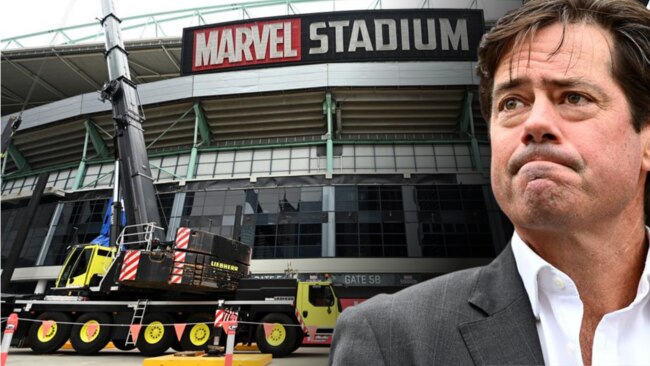
Works at the stadium are in full swing, but capacity at Marvel Stadium will not be affected in coming months as the league prepares to welcome back 100 per cent capacity crowds for the first time in almost a year.
“If you don’t want to get to the football in this town, then you don’t really love it,” McLachlan said.
“I expect close to capacity crowds right the way through.
“Our (Round 1) record is 401,000 in 2017 – I hope to beat it.”
The state government has invested $225m to revamp Marvel Stadium over coming years, with two suspended big screens one of the first installations that will greet fans in Round 1.
“(They’re) the sexiest things you can imagine,” McLachlan laughed.
In a wide-ranging media appearance – McLachlan’s first for 2022 – the league chief addressed a range of topics including how Covid will affect this season, top-up players, the timeline for a decision on a Tasmanian team and the explosive revelations from the Australian Brain Bank surrounding links between chronic traumatic encephalopathy – caused by repeated head knocks – and suicide.
Stream every match of every round of the 2022 Toyota AFL Premiership Season Live & Ad-Break Free In Play on Kayo. New to Kayo? Try 14-days free now.
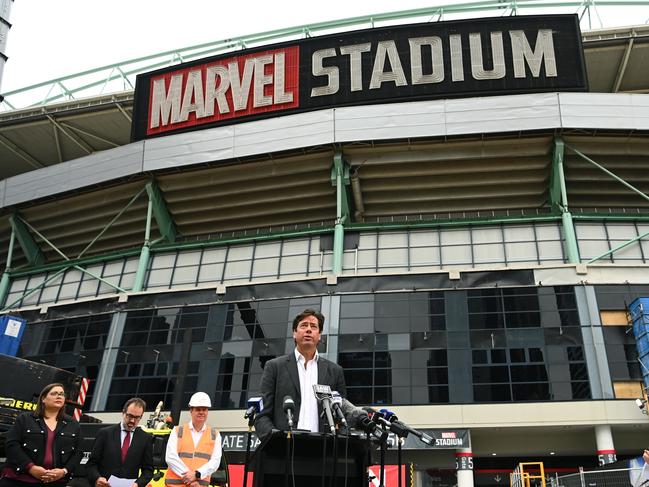
“It’s play on”
While McLachlan affirmed that “Covid is not over” – particularly as winter looms – he maintained the league’s position that this season will go ahead as unaffected as possible.
The last two seasons have seen fixture upheaval and teams moved into hubs, but McLachlan is adamant that every game will be played every single week “as scheduled”.
“We are living with it. That’s our mindset,” he said.
“We are living with this disease and we are moving forward in that mindset. But we actually have to live with it and get our lives back.
“We know there’s going to be challenges in the middle of winter that look different than they do right now, but the settings right here today are (that) we’ve put provisions in place around top-ups and others … it’s play on.
“Hopefully we can continue to have 100 per cent capacity of crowds, we’re going to roll out the fixture and we’re going to live with this illness and get on with our lives.”
He confirmed that an official plan for top-up players for each club – which will allow access to 20 extra players should Covid take hold at a club – will be finalised over the next week.
“Living with Covid is going to put an element of discipline requirements on clubs and resilience and we’re going to provide the tools for them to make sure that they can be equipped to play every week,” McLachlan said.
Fixture freedom
The league has locked in the first nine rounds of the AFL fixture, but McLachlan said it would have to strike a balance between certainty and flexibility.
He said the AFL would endeavour to give fans at least six to eight weeks’ notice for their team’s matches this season.
“Some people would like to know a bit more – you’re trying to balance the flexibility we saw and the help that gives you in the fixture with the certainty that people want,” he said.
“All I’d say to our members and supporters is that we know you want the certainty – but we think we’ve given you that at the venues, around pricing, around the fixture. And you’ll have at least six to eight weeks to plan.”
Brain bank fears
News emerged on Monday that half of all Australia’s sports brain bank donors diagnosed with CTE had taken their own life.
McLachlan said that concussion remained at the forefront for the league and that it would remain so.
“I feel we’re doing enough – we’re continuing to do more all of the time,” he said.
“We’ve been making changes to the rules to protect the head for 20 years.
“We’ve been investing in research for a long period of time and we’re investing in treatment and diagnosis.
“We’ve announced a year ago a large level of increasing funding into research, we’re funding a longitudinal study and we’re talking and partnering with all of the right people. It’s a very important area for us and we continue to do more listening and learning and acknowledging the significance of it.”
Tasmania timeline
The league chief said that there were “good discussions” under way with the Tasmanian AFL working group, which convened its first meeting in December as it works to assess the merits of a stand-alone team on the Apple Isle.
“There’s a timeline in the second half of this year. They’re working through an agenda and are in a good spirit and we’ll see where that goes,” he said.
The working group will report its findings, with a vote from the existing clubs to be considered in the second half of this year.
The league recently reported a $43 million loss from the Covid-plagued 2021 season, but McLachlan maintained that finances would not determine any potential new team’s fate.
“Our balance sheet is in good shape, the game’s in good shape,” he said.
“The right decision will be made, whatever that looks like. Affordability comes into it, but that’s not going to be the defining issue.”
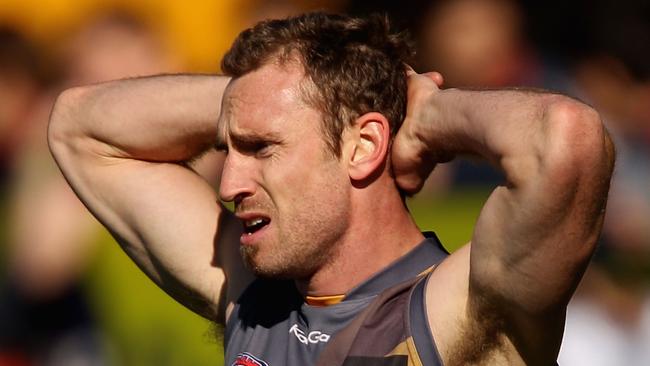
Chilling footy suicide link in brain bank findings
Half of all Australia’s sports brain bank donors diagnosed with neurodegenerative disease CTE took their own life in a chilling reminder of the risk of concussion and head knocks.
A research letter published on Monday in the Medical Journal of Australia analysed the results of the first three years of operation of the Australian Sports Brain Bank.
The findings revealed that of the 21 sports figures who had donated their brain, 17 had played a football code such as Aussie rules, rugby or soccer and all but but one had some form of brain degeneration.
Of those 21 there were 13 who had two or more forms of neurodegeneration, with 12 having “pathognomonic CTE legions”, or CTE.
Six of the 12 donors with CTE died by suicide, while another brain bank donor without CTE also took their own life.
Chronic Traumatic Encephalopathy is the degenerative brain disease diagnosed in AFL players Danny Frawley, Shane Tuck and Graham “Polly” Farmer.
Both Frawley and Tuck took their own lives as they battled mental health issues, with Frawley’s widow Anita pledging to commit her future to understanding the disease after his death in September 2019.
Tuck had the most severe case of CTE Australian experts had seen.
Associate professor Michael Buckland, a neuropathologist with the Royal Prince Alfred Hospital, conceded a bias in the results was “inevitable” given many of the brain donations had been made by families seeking clinical diagnosis.
But he called upon sporting codes to continue developing policies that mitigated the risk of repetitive injuries.
“We can’t draw any hard and fast conclusions from the data, but that suicide is a common cause of depth is disturbing and something we are actively exploring,” he told the Herald Sun.
“There is pretty good data out there that a single concussion doubles your risk of suicide for at least a year and probably four or five years. It’s not a great leap to think CTE increases your risk of suicide.
“CTE is about the number of years played and concussions but also sub-concussive knocks.
“So it’s about modifying the game or training, but also the other thing is looking at the first exposure to head knocks. They are the two key factors to any CTE policy.”
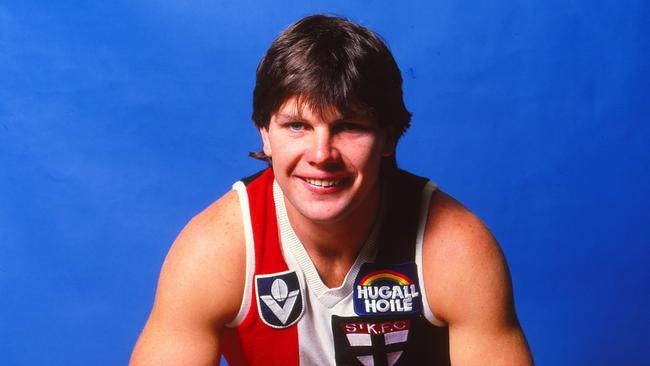
Concussion campaigner Peter Jess estimates 32 AFL players have been forced to retire since 2009 because of head knocks and concussions.
Buckland said the fact 20 of the 21 players had some form of neurological degeneration showed Australia had a similar experience to American sport, where in one study 110 of 111 professional players with donated brains had evidence of CTE.
“We know from clinical trials into American football players and professional soccer players in the UK, both studies looked at death certificates.
“Alzheimers was on the death certificate at four or five times higher than in age-matched controls. So it’s a problem here, it’s a problem in the UK, it’s a problem in the US.”
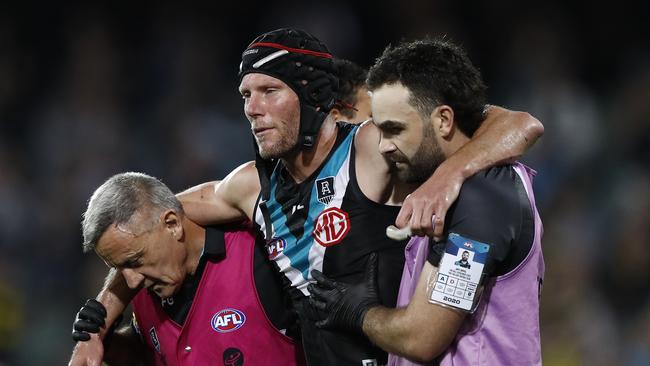
Buckland said codes including the AFL needed to advance far-reaching policies rather than falling back onto international concussion guidelines that were clearly out of date.
“The codes in the past have relied on the international consensus statement on concussion in sport and the AIS guidelines. In my opinion both documents significantly downplay the evidence of association with contact sports. It’s almost like a get-out-of-jail-free card.
“Those international concussion guidelines were written in 2016 based on 2015 data.“

